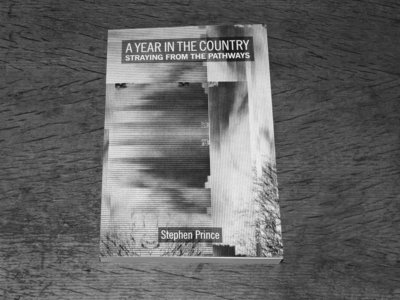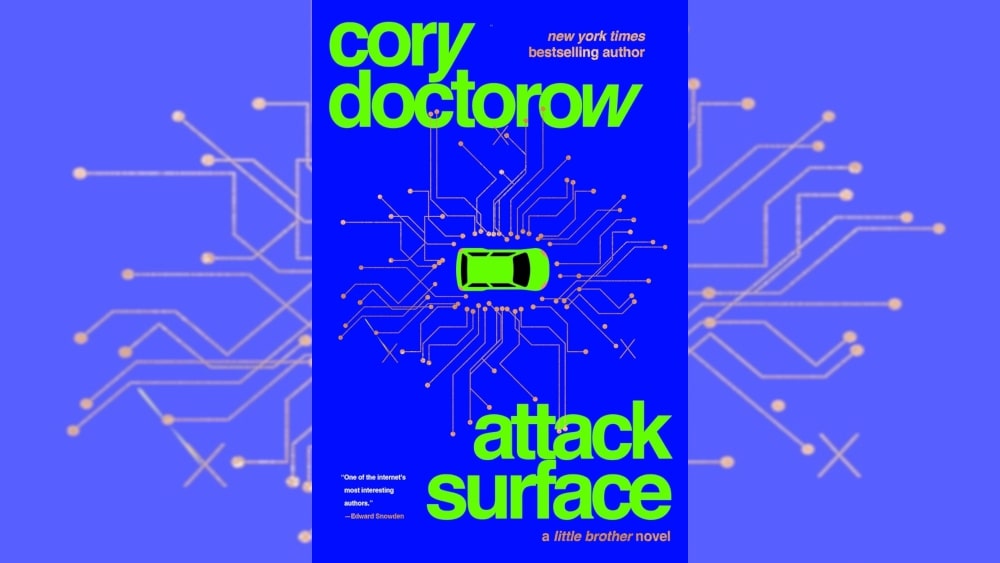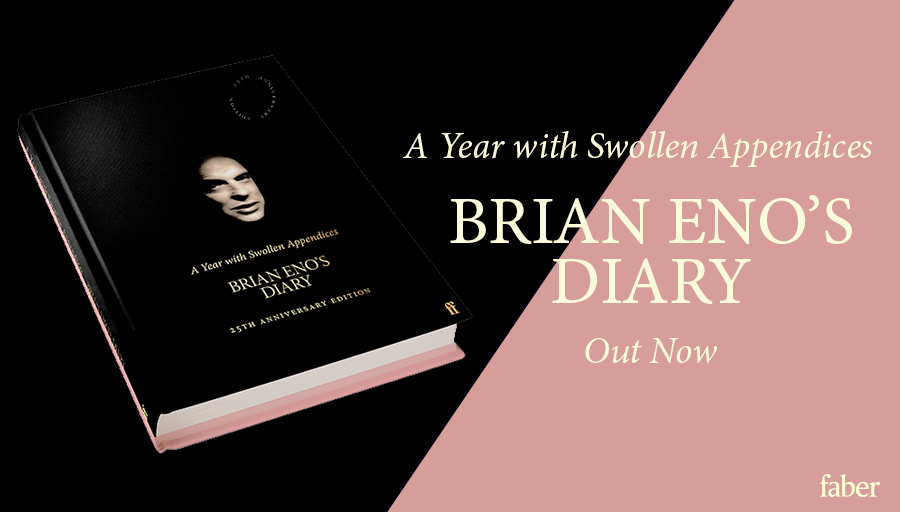
A Sense of Doubt blog post #2301 - WHAT I AM READING pt.2 - Antiracism, ENO, and Attack Surface
So, I started this new thing: WHAT I AM READING. My goal was to share a post each Wednesday as a kind of reading diary.
Well, I had a busy week, and as I have always claimed, posts that are heavy in original content, even if I keep it short, take longer and sufficient free time than a simple share, even if I make a brief commentary on the share.
So, I am foregoing the usual "COMIC BOOK SUNDAY," with a post that's all about comic books to focus on what I am reading.
Fear not, I will share a bit about comic books.
I am actively reading four books, not counting ones I dip into a little, and I am only going to write about three of them in this post, but the fourth one is
The A Year In The Country: Straying From The Pathways book
from A Year In The Country
 |
| https://ayearinthecountry.bandcamp.com/merch/the-a-year-in-the-country-straying-from-the-pathways-book |
The other three books I am reading are as follows:
As seen in the topper image, A Year With Swollen Appendices: Brian Eno's Diary - the 25th anniversary edition by Faber that I mentioned I was reading here:
A Sense of Doubt blog post #2296 - "The Great Gig In the Sky" - Live - Musical Monday on Tuesday for 2106.01
Attack Surface by Cory Doctorow
And as I wrote about in most depth last week:
Meanwhile, Cory Doctorow's Attack Surface is my main book to read in the traditional way one does with one's eyes (as opposed to my audio book).
I am really struck by the use of jargon in the first person narration in his novel.
But as I did last week, I want to focus primarily on How to be an Antiracist by Ibram X. Kendi again this week.
The next chapter (two) focuses on "Dueling Consciousness," a concept derived from the writing of W.E.B. Du Bois.
Kendi feels that the term dueling consciousness may be more accurate than Du Bois' term of "double consciousness." Kendi argues that "the duel in black consciousness seems to usually be between antiracist and assimilationist ideas" (Kendi, 29).
I am working to internalize these ideas, but there are deep rooted racist ideologies on a feeling level that thinking rationalism cannot fully eradicate.
I am a work in progress, but progress I am making (as Yoda would flip it).
Attack Surface by Cory Doctorow
 |
| https://geekdad.com/2020/10/word-wednesday-attack-surface-by-cory-doctorow/ |
And as I wrote about in most depth last week:
How to be an Antiracist by Ibram X. Kendi

And of course, every week, a bunch of comic books. Tonight's comic will be (and was, as I am writing this on Monday morning) Fantastic Four #032 [Legacy #677].

https://comicbookroundup.com/comic-books/reviews/marvel-comics/fantastic-four-(2018)/32
Okay, so one at a time. I don't have to warn you about SPOILERS

And of course, every week, a bunch of comic books. Tonight's comic will be (and was, as I am writing this on Monday morning) Fantastic Four #032 [Legacy #677].

https://comicbookroundup.com/comic-books/reviews/marvel-comics/fantastic-four-(2018)/32
Okay, so one at a time. I don't have to warn you about SPOILERS
right?
First, Fantastic Four #32 [Legacy #677].
Not everyone is a Dan Slott fan. Apparently, there's some bad feelings toward Slott in fandom. I am not sure what that's all about, and I don't care. Slott is a smart writer who understands the essence of the comics he tackles and their characters.
So, it is with The Fantastic Four. He understands the history (Johnny's exes in the case of this issue), the family core of the comic (as best evidenced by the two couples and their children and the Thing's "yes, dear" husbandly response to avoiding conflict), and most importantly the characters.
This issue focuses mainly on Johnny Storm, the Human Torch, and his relationships with women, specifically Sky, his latest love interest, his "soulmate," who followed him here from another planet. This relationship with Sky is complicated by Lyja, his ex-wife and a Skrull, who has returned to earth ostensibly to make Johnny's life complicated. And so Johnny seeks the advice of another ex, Crystal, the Inhuman, whose aura-reading daughter, Luna, chimes in that Johnny is afraid to commit and needs her advice.
Luna also "sees" (from aura reading) that Johnny is about to screw everything up, which is very in keeping with his character.
And at the end of the issue, we see that he has slept with Zora, also known as Victorious, Doctor Doom's right hand, who he asks to marry him in the issue's cliff-hanger.
Recaps and a reasonably decent review (though I do not agree 100%), here:
Recaps and a reasonably decent review (though I do not agree 100%), here:
https://comic-watch.com/comic-book-reviews/fantastic-four-32-one-human-torch-too-many-women
In any case, I loved the comic because I love what makes the Fantastic Four the first family of comics, and this story especially continues to explore that dynamic.

https://www.interviewmagazine.com/culture/brian-degraw-brian-eno-diary
and
In any case, I loved the comic because I love what makes the Fantastic Four the first family of comics, and this story especially continues to explore that dynamic.

https://www.interviewmagazine.com/culture/brian-degraw-brian-eno-diary
and
https://thebluemoment.com/2020/11/27/re-reading-brian-enos-diary/
Starting my own re-read of Brian Eno's diary, I was struck for a few minutes by the idea to imitate with the same type activity here, the daily diary and thought stream.
Starting my own re-read of Brian Eno's diary, I was struck for a few minutes by the idea to imitate with the same type activity here, the daily diary and thought stream.
And then I rejected the idea in part for the same reason I almost did not start daily blogging with the T-shirts project: fears of narcissism, as I explained here:
T-shirt #77: Narcissism.
Reading Eno's diary is a very surreal experience because his life is so dramatically different from mine and from anyone I know, and yet there's familiarity because I have been a fan of his and of Bowie's (whom he simply calls David) for a long time. To read about Eno working with Bowie on the sessions that would become the 1995 album Outside is very familiar and intriguing, especially 25 years on.
Reading Eno's diary is a very surreal experience because his life is so dramatically different from mine and from anyone I know, and yet there's familiarity because I have been a fan of his and of Bowie's (whom he simply calls David) for a long time. To read about Eno working with Bowie on the sessions that would become the 1995 album Outside is very familiar and intriguing, especially 25 years on.
Since I admire Eno so much -- like my adoration of Warren Ellis, whom I miss immeasurably now, a year after he has vanished from our weekly landscape (and I mean all of us who would follow his life via the weekly newsletter) -- that reading his diary (again) provides me with all sorts of things to learn about from someone whose opinion I respect immeasurably. I am struck by all his thoughts of sex and attraction to women in his diary. I feel we are kindred spirits in a sense.
I plan to look up (and have already started) things Eno mentions and to contemplate ideas Eno has, such as a coffee table book of epic noses and the way autistic people see the world.
I am really struck by the use of jargon in the first person narration in his novel.
I am a big Doctorow fan. The book is always filled with all sorts of things to learn about, things of all kinds, such as how I learned about cold brewing coffee from Cory.
Also, I read Radicalized last year, his book of short stories, which are brilliant, especially the proprietary toaster and bread featured in the story "Unauthorized Bread," which is the kind of idea that's so great, I wish I had thought of it.
Also, I read Radicalized last year, his book of short stories, which are brilliant, especially the proprietary toaster and bread featured in the story "Unauthorized Bread," which is the kind of idea that's so great, I wish I had thought of it.
I am not making the kind of nightly progress in any reading, especially Attack Surface, that I would like because I am often so exhausted when I get to bed that I have maybe thirty minutes of reading before I am passing out, which is both good and bad.
Nevertheless, I am just past the inciting incident of the novel's beginning and about to dig into the novel's core story.
But as I did last week, I want to focus primarily on How to be an Antiracist by Ibram X. Kendi again this week.
I am currently in chapter 11 and on page 149 of the book, having plowed through over 100 pages since last week due to a lot of driving in the car and a couple of dog walks without the wife (as I do not listen to an audio book when hanging out with my wife).
Last week, I scratched the surface of the book's ideology with the content in chapter one on healthcare and voting inequities.
The next chapter (two) focuses on "Dueling Consciousness," a concept derived from the writing of W.E.B. Du Bois.
Kendi starts the chapter with a set of definitions, as all chapters begin, in this case listing definitions for assimilationist, segregationist, and antiracist. Assimilators see other groups as culturally inferior and want to eradicate their cultures and replace them with "civilized" cultures, think missionaries in Africa. Segregationists just want to shove these groups off in a hole (reservation, ghetto) because "assimilation" is not possible because they are inferior. Obviously, antiracists feel neither of these approaches are valid, and they support equality between groups.
One strength of Kendi's book is his inclusion of plenty of personal experience and personal history and his ability to look critically at his own behavior and evolving mindset.
I have a new understanding. In the last year, I have argued that black people are automatically antiracist. This is not true.
Kendi takes his idea of "Dueling Consciousness" from Du Bois' 1903 book The Souls of Black Folk in which he explained the black world versus the white world concept in stark terms.
"It is a peculiar sensation," Du Bois wrote, "this double-consciousness, this sense of always looking at one's self through the eyes of others" (Du Bois in Kendi, 28-29).
Kendi explains that Du Bois wanted to be both Nego and American, neither willing to "Africanize America" nor "bleach his Negro soul in a flood of white Americanism" (Kendi, 29). As Kendi paraphrased Du Bois: "To be American is to be white. To be White is not to be Negro" (Kendi, 29).
Kendi feels that the term dueling consciousness may be more accurate than Du Bois' term of "double consciousness." Kendi argues that "the duel in black consciousness seems to usually be between antiracist and assimilationist ideas" (Kendi, 29).
Assimilationist ideas are racist, as Kendi explains. These ideas seem natural to many and are rooted in white privilege, an inherent and often unconscious implicit bias and strong ethnocentrism.
White privilege also prevents many white people from really trying to understand this dueling consciousness taking place in the minds and souls of "black folk" as Du Bois called them.
These ideas have not gone away. Within the last four years Trump referred to people of color as "animals" (Latinx immigrants) and re-iterations in new clothes of the hateful ideas of people like David Hume who in 1753 wrote that all races are created unequally, in other words, some are superior to others.
Thomas Jefferson seemed to negate that view twenty years later with "all men are created equal," but he owned slaves and women could not vote, so did he really consider either as equals?
As Kendi affirms at the end of the chapter: "To be antiracist is to conquer the assimilationist consciousness and the segregationist consciousness. The White body no longer presents itself as the American body; the black body no longer strives to be the American body, knowing there is no such thing the American body, only American bodies, racialized by power" (Kendi 34).
I am working to internalize these ideas, but there are deep rooted racist ideologies on a feeling level that thinking rationalism cannot fully eradicate.
I am a work in progress, but progress I am making (as Yoda would flip it).
+++++++++++++++++++++++++++++++++++++++++++++++++++++++++++++++++++++++
+++++++++++++++++++++++++++++++++++++++++++++++++++++++++++++++++++++++
+++++++++++++++++++++++++++++++++++++++++++++++++++++++++++++++++++++++
- Bloggery committed by chris tower - 2106,06 - 10:10
- Days ago = 2165 days ago
- New note - On 1807.06, I ceased daily transmission of my Hey Mom feature after three years of daily conversations. I plan to continue Hey Mom posts at least twice per week but will continue to post the days since ("Days Ago") count on my blog each day. The blog entry numbering in the title has changed to reflect total Sense of Doubt posts since I began the blog on 0705.04, which include Hey Mom posts, Daily Bowie posts, and Sense of Doubt posts. Hey Mom posts will still be numbered sequentially. New Hey Mom posts will use the same format as all the other Hey Mom posts; all other posts will feature this format seen here.
+++++++++++++++++++++++++++++++++++++++++++++++++++++++++++++++++++++++
- Bloggery committed by chris tower - 2106,06 - 10:10
- Days ago = 2165 days ago
- New note - On 1807.06, I ceased daily transmission of my Hey Mom feature after three years of daily conversations. I plan to continue Hey Mom posts at least twice per week but will continue to post the days since ("Days Ago") count on my blog each day. The blog entry numbering in the title has changed to reflect total Sense of Doubt posts since I began the blog on 0705.04, which include Hey Mom posts, Daily Bowie posts, and Sense of Doubt posts. Hey Mom posts will still be numbered sequentially. New Hey Mom posts will use the same format as all the other Hey Mom posts; all other posts will feature this format seen here.


No comments:
Post a Comment